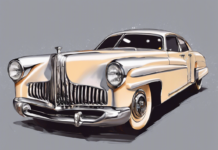Babies and tiny children are known to have sleeping problems due to their prolonged breathing and the lower air pressure in their little bodies. But according to new studies, it is found out that sleep apnea and babies with brain defects may share the same problem. The only difference is that babies with brain defects do not get to breathe through their mouths. This is because their air passages are blocked or partially obstructed, which causes their bodies to remain inactive during their REM (or dream) sleep. They continue breathing throughout their rest, sometimes even during their naps.
This poses a considerable risk of their infants not developing healthy sleep habits. One of the most common diseases in these tiny infants and even toddlers is called plagiocephaly, wherein the front part of their skulls is much thicker than the back part, which causes the baby’s brain to not fit into the cranium. Their foreheads are much more prominent than their foreheads, which could cause their airway to be blocked. And because they cannot get to breathe correctly during their nighttime hours, mothers who think their babies are sound asleep when in reality they are not are putting their baby in a risky situation by not allowing them to sleep with them in their cribs and Playard. Also, it is needed to make the baby sleep in a room with 65 degrees Fahrenheit as the temperature.
It is not uncommon for some newly born babies to not gain weight during their first 12 weeks. However, some research has shown that these babies do gain weight because their circadian rhythms are not synchronized yet. Through the help of experts, it has been discovered that babies born early – before they reach their 12 weeks of life – develop their circadian rhythms, which help them grow and develop normally. The lack of exposure to artificially made food during this developmental period may also lead to obesity.
When Is A Baby Able To Sleep With A Blanket And A Pillow
Babies do not have the same idea of comfort as we do. They do not know when a baby can start sleeping with a blanket and a pillow, or any blanket for that matter. But the fact is, they need the same things to feel secure and comfortable. A blanket and a pillow provide these things.
When you hold your baby in your arms, he feels safe and secured. He knows that if he starts moving, his parents will come and pick him up. He gets to roll on his stomach and feel relaxed because the blanket has all he needs to feel safe and fall asleep. A blanket and a pillow can provide all the comforts and security a baby needs to sleep well. Blankets come in all shapes and sizes and can be used for many years to help your baby get a good night’s sleep. The primary purpose of blankets is to keep the child warm and cozy. This allows the baby to relax and feel more secure. When babies are cooped up in a bed, they often do not sleep well at all. But when they roll around in a blanket, they feel more at ease and can fall asleep faster.
The other main reason a blanket is needed when a baby can start sleeping with a blanket and a pillow is the temperature. To make sure that the baby sleeps as long as possible, he needs to have a warm body. So, blankets are used to provide warmth to this part of the body. In addition, they also keep the body relaxed by keeping the heat from escaping from the body. A blanket also has the advantage of keeping the child from waking up in the middle of the night, which is a common problem for newborns.
When Can A Baby Start Sleeping With A Pillow
It all depends on what your baby needs. If he is very young, he may need one just to get started. But as he grows, you can remove the blanket and use a larger one, especially if he is awake during the night. There are no special times when he should sleep without one. However, most parents would agree that it is a good idea for newborns to get a few hours of sleep each day. This will help them develop a better sleep cycle. Also, please don’t put your child on melatonin supplements as they can suffer from melatonin overdose.
Some babies will cry when they wake up, but most of them will grow out of this habit in a few weeks. But if your baby does not cry, do not worry. As long as he is comfortable when he wakes up, he will be fine when he is older and needs more sleep. You have to make sure that he is sleeping in his crib before you put him to bed.
So, when can a baby start sleeping with a pillow? As long as he is comfortable when he is awake. As long as he is sleeping in his crib at night. If he is not, you may want to encourage him to go to bed with you by getting on the bed with him. That way, he will learn to go to sleep on his own.
Another thing to look forward to when a baby can start sleeping with a pillow is when he starts crawling. It is almost like having another person sleeping in his crib. You can hold him, stroke him, pick him up, and so much more. He will love it!
Also, a baby can start sleeping with a pillow at About six months to a year. It all depends on your baby. How deep he can sleep without hitting the bottom of the bed. You can encourage him to start going to sleep independently when he is older, and you want him to have a good sleep pattern.
Conclusion
Like any habit, it will take work to get him to go to sleep independently. The earlier you can do this, the better. That way, there are fewer accidents when he wakes up from sleep, and you will not have to roll him onto his back for one of his night faints. If you start when a baby can start sleeping with a pillow, you will both be happy!









